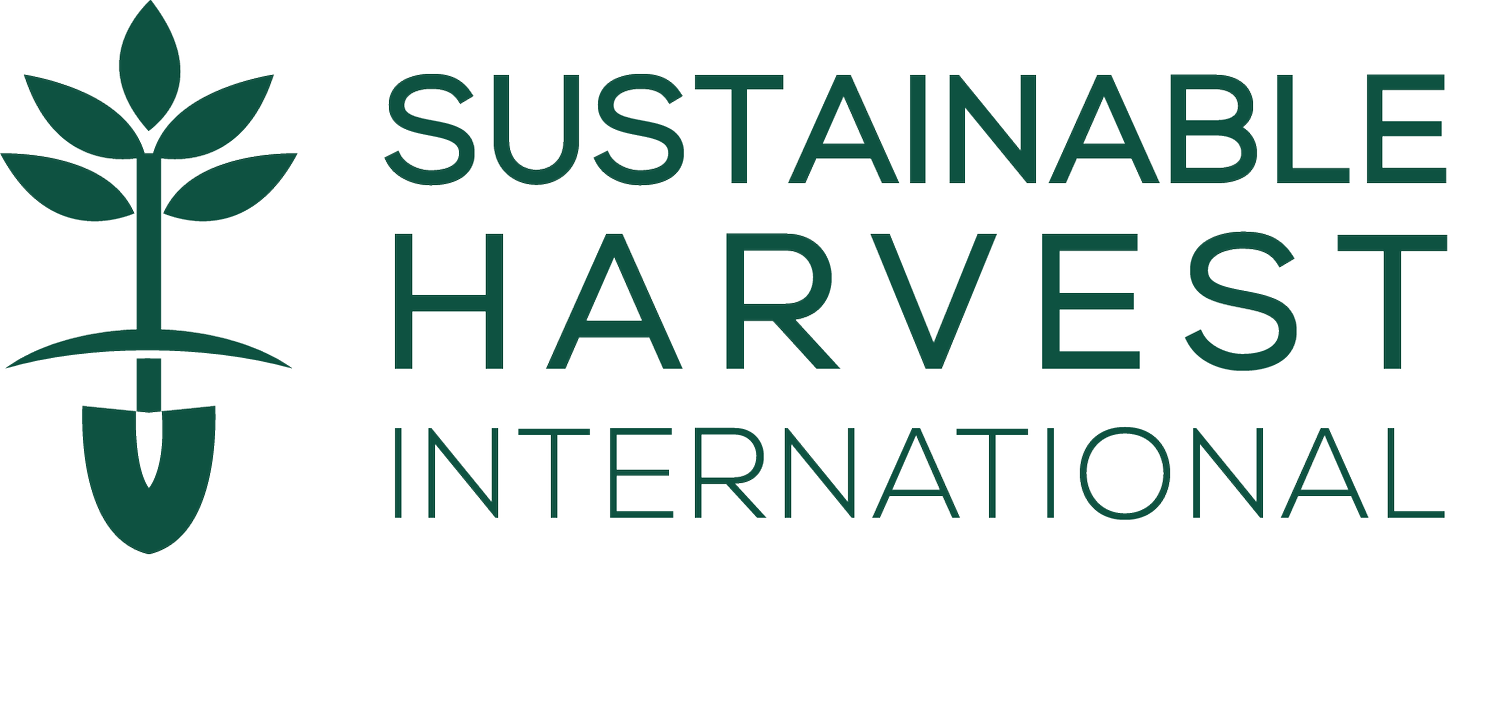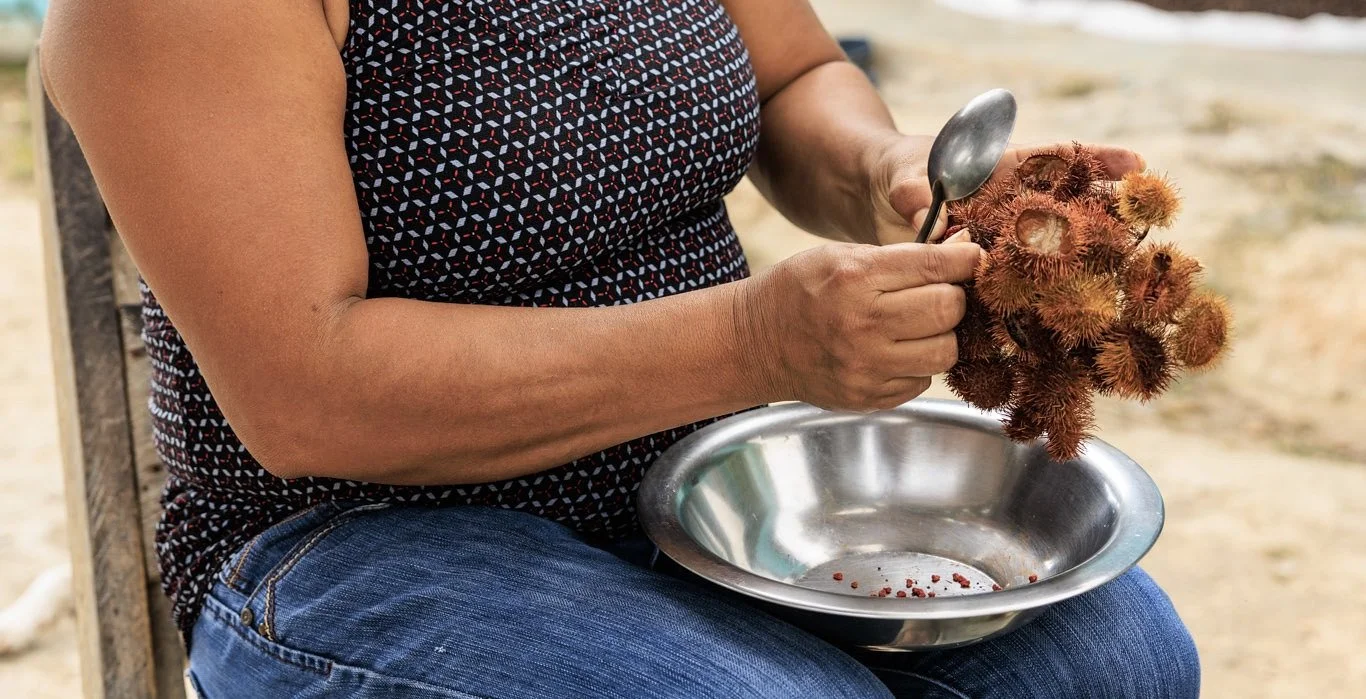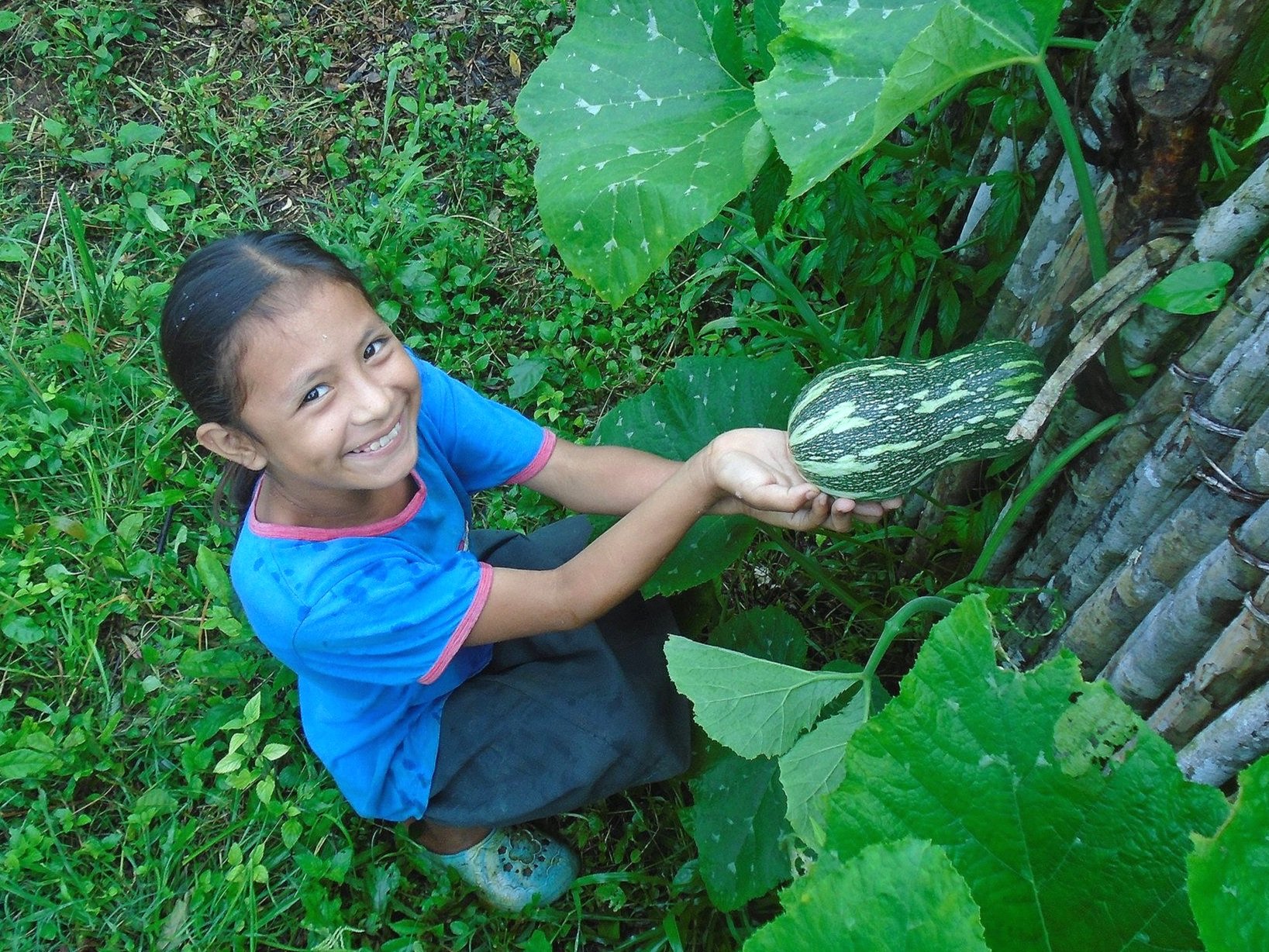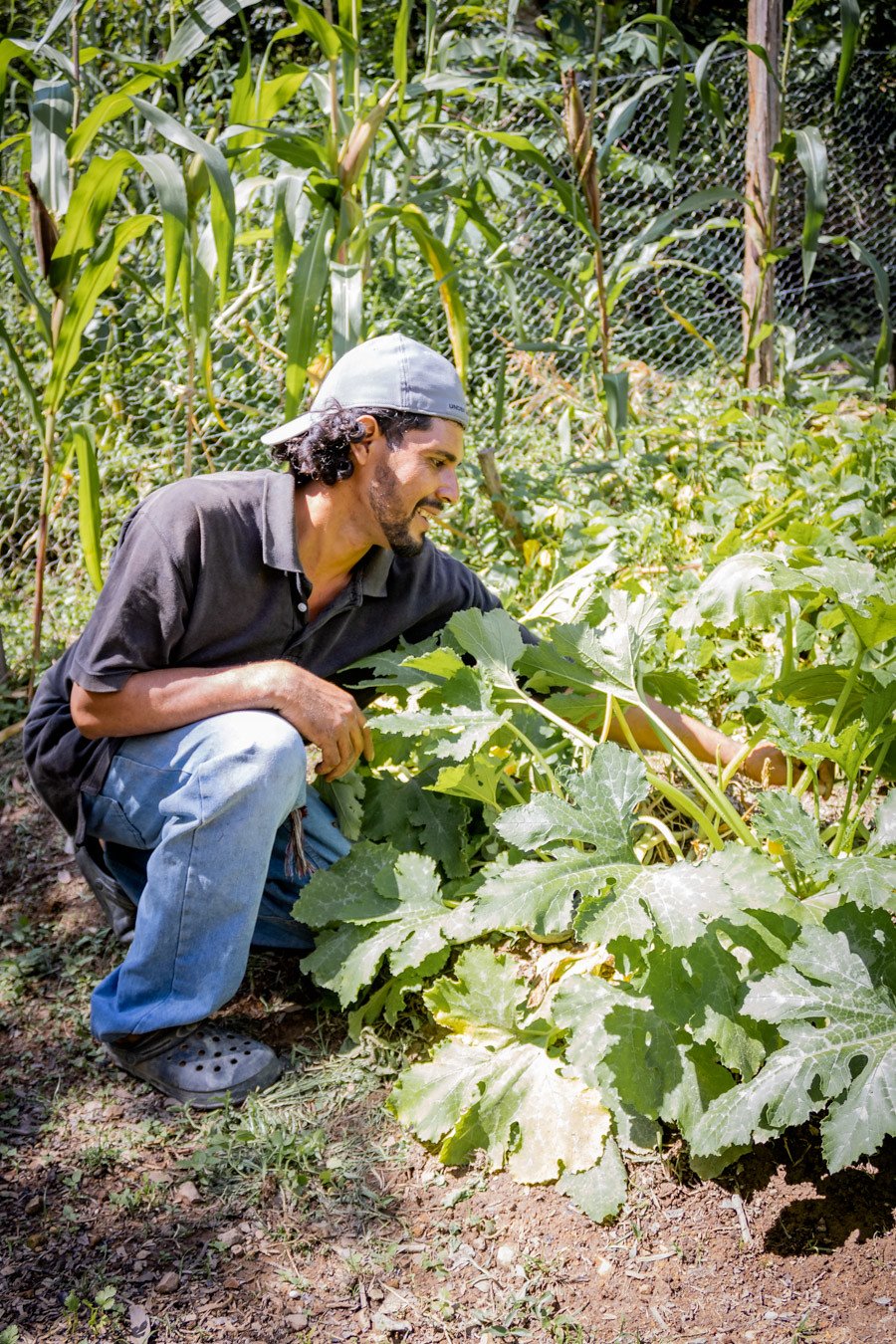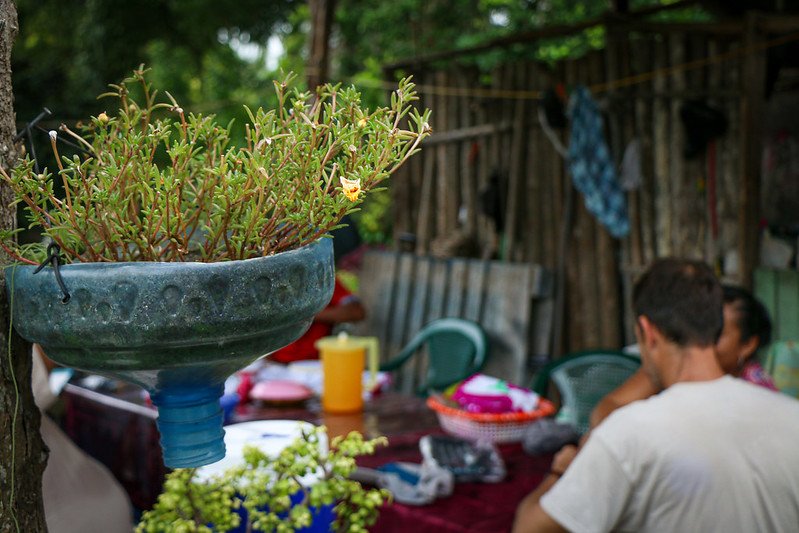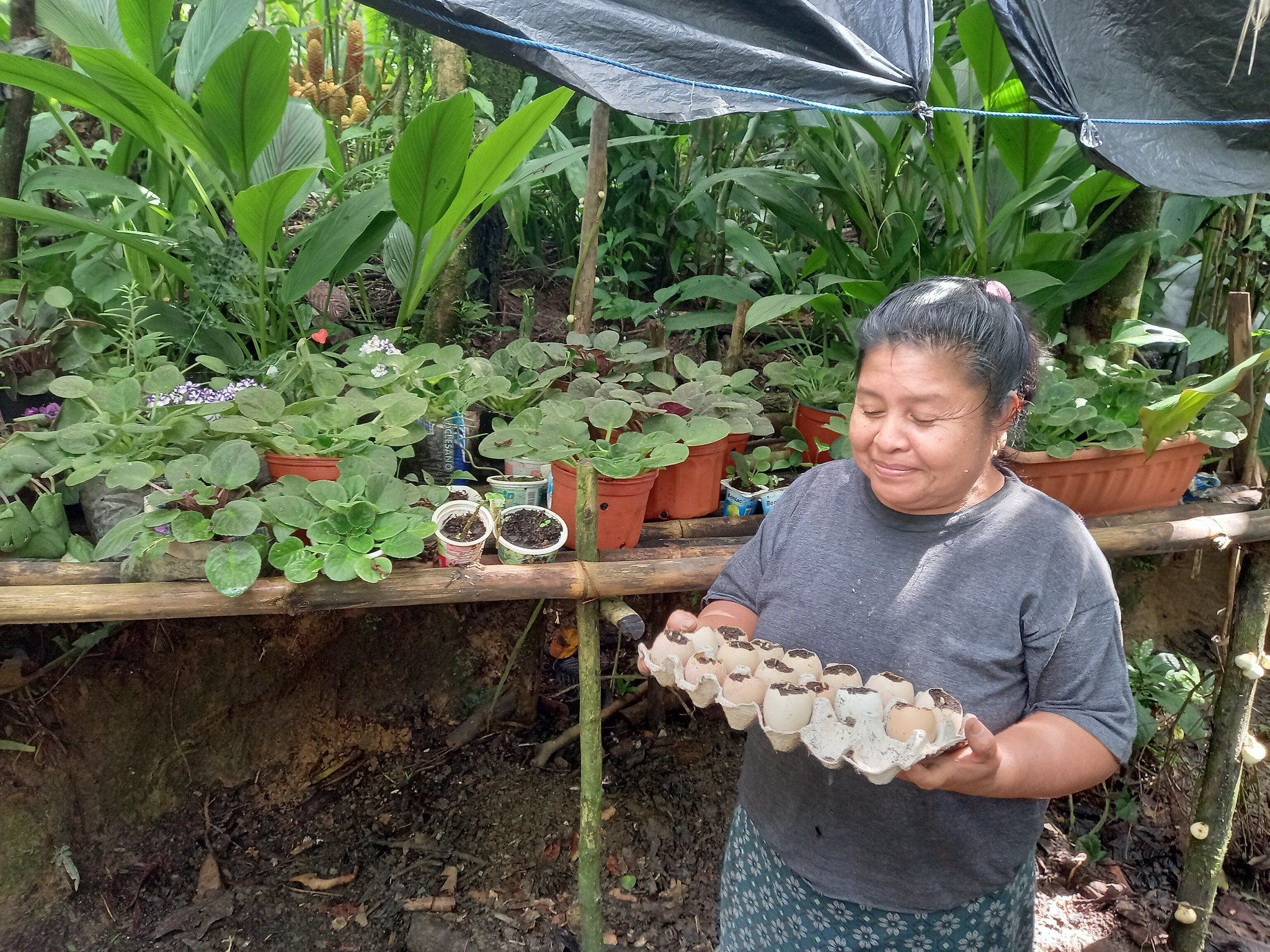This blog post is Part 2 to our popular post published in 2022.
Each year, Earth Day reminds us of the beauty and importance of our one and only home. This reminder reignites our commitment to safeguarding Earth and the many species that rely on natural resources, including ourselves.
This Earth Day, Sustainable Harvest International (SHI) has curated a second compilation of thirteen impactful practices and daily routines that, when adopted, nurture our planet and preserve it for future generations.
We hope this series inspires you to be an active steward of our planet and deeply appreciate the marvels of the natural world. Above all, we hope this series inspires you to express love for our irreplaceable Earth, today and every day.
Daughter of SHI-Belize partner farmer in Otoxha Village proudly shows her family’s growing pumpkin.
Local Food Systems
SHI trains and empowers family farmers as they transition towards sustainable farming practices. Through our programs, farmers gain the knowledge and skills to nurture the soil and the environment, ensuring a reliable food source for their families. Our first sustainable tip is the reason behind our work:
Tip #1: Support regenerative agriculture
Conventional, or industrial, agriculture heavily relies on chemicals to protect crops from weeds, specific insect species, and diseases. However, these chemical fertilizers disrupt the delicate fungal networks within the soil, gradually degrading the soil’s health. Over time, conventional agricultural methods lead to soil degradation, threatening our ability to cultivate food.
In contrast, regenerative agriculture prioritizes the health of soil, recognizing it as the foundation of the food systems that sustain us. Regenerative practices actively work to restore and strengthen soil networks, reversing the damage inflicted by conventional agriculture. The fate of our planet and the security of our food sources now depend upon a global transition from conventional to regenerative agriculture. As a consumer (i.e. as someone who purchases food), you can support this necessary transition. By supporting organizations, farmers, and policies advocating for regenerative farming practices, you can contribute to securing a healthier, more sustainable future for ourselves and generations to come.
SHI-Honduras partner farmer Rosa Argueta with her kids, Rosa Isela, Jonatan, and Jerson Marcelo on their sustainable farm.
Tip #2: Start a garden or join your local community garden
SHI-Honduras partner farmer Marel Guerra maintains his backyard vegetable garden.
Even if you’re not able to grow all of the food you consume, starting with just one plant makes a difference. Planting a garden that fits your needs and preferences, and that can flourish in your local climate, not only saves you money on groceries but also contributes to the restoration of our planet. SHI partner farmers plant vegetable gardens in their backyards, making the most of their limited space. You can also join your local community garden where you’ll learn how to grow food while connecting with your neighbors.
Pro Tip from Tania Roa, our Communications + Outreach Coordinator: There are plenty of herbs that grow indoors year-round, so you don’t need to worry about acquiring land.
Biodiversity
Tip #3: Support conservation initiatives
SHI-Belize partners with the Corozal Sustainable Future Initiative (CSFI), a nonprofit in Belize dedicated to protecting the country’s incredible biodiversity. Among CSFI's endeavors is the management of the Shipstern Conservation and Management Area, a vital wildlife sanctuary in Northern Belize crucial for the survival of endangered species such as the iconic jaguar. The area is surrounded by farmers who use conventional practices and see animals like the jaguar as a threat to their livestock, tragically leading to wildlife-human conflict. In response, CSFI works tirelessly to raise awareness about the importance of wildlife conservation and mitigate conflicts between farmers and wildlife.
SHI programs contribute to conservation efforts by working with communities. Through education and outreach, our partner communities learn to coexist harmoniously with wild animals instead of resorting to persecution. You, too, can find a way to support conservation projects near you. The organizations and wildlife they protect will thank you!
Butterfly found in Corozal Sustainable Future Initiative’s butterfly garden during a SHI visit.
Tip #4: Participate in ecotourism
Traveling to new and exciting places is a great way to enjoy a vacation. Yet, it’s important to note that mass tourism can have an adverse impact on the people and environment. When planning your next trip, search for companies that are transparent about their sustainable practices, are certified by a third party such as B Corp, or are owned by locals who have a connection to the area.
Tip #5: Encounter wildlife in their natural habitats
Wildlife watching is a great way to connect with other species, but it should be done with their well-being in mind. When animals are coerced into performing for tourists, such as trained jumping dolphins or big cats used for selfies, it often involves capturing them from their natural habitats and can cause distress. Instead, consider encountering wildlife in their natural habitats and witness their natural behavior. Options such as whale watching cruises, snorkeling, bird watching, and many more offer enriching and ethical interactions.
Right at Home
Tip #6: Reduce single use plastic
Plastics are choking our planet as they spread to every continent and muck up our waterways and oceans. Reducing the use of plastic can help people and wildlife everywhere, leading to far-reaching impact. It can seem difficult when so many products and packaging involve plastic, but there are practical ways to reduce plastic use. Opting for reusable alternatives such as tote bags, metal water bottles, and reusable metal straws makes a difference. You can also reduce your use of plastic by reusing items you already have.
Pro tip from Kate Herndon, our Director of Development: If your purchase came in a plastic bag, try finding another use for the bag instead of throwing it away.
SHI-Belize partner farmers Jorge and Marcela Yam reuses water containers as plant pots.
Tip #7: Use natural hygiene and cleaning products
Many everyday products, from shampoos to detergents to dish soaps, contain harsh chemicals that lead to indoor air pollution or are absorbed by the skin. Switching to alternative brands that use natural ingredients minimizes chemical pollution and is healthier for your skin or home. You can also look up recipes for DIY (Do It Yourself) hygiene and cleaning products. You’d be surprised at how many ingredients in your kitchen can have a second purpose as a facial scrub!
Tip #8: Borrow or rent instead of buying
Sometimes we need to use things that we know we likely won’t use again, yet we still purchase it. Then it takes up space in our miscellaneous kitchen drawer. A simple, yet forgotten, solution is to borrow the thing instead. Need a hammer while you’re remodeling your home? Ask a friend! Were you invited to an elegant ball, but don’t want to buy an expensive dress you’ll never wear again? Rent one instead!
Pro Tip from Tania: You can also download the Buy Nothing app and trade things for free.
Tip #9: Support small businesses
In the same way family farmers form the backbone of local food systems, small businesses serve as the cornerstone of local economies. Unlike large corporations focused solely on profit, family-owned businesses are often more inclined towards sustainability. When making purchases, consider supporting family-owned businesses. Look for businesses that are transparent about their supply chains and demonstrate a genuine commitment to environmentally conscious supply chains.
““A farmer in a remote village in Honduras is providing us with organic coffee, providing winter habitat for our song birds, stabilizing our global climate, preserving the forests that are the source of most of our medicines, creating oxygen to breathe and protecting the coral reefs from siltation as a result of deforestation. So if a poor farmer in Honduras can do all this for us, what can we do for him?””
Tip #10: Spend time outside
Whether you walk your dog on a nearby trail or read an insightful book at your local park, any time spent outside in nature boosts your mental health. In today’s world, we are continuously sitting down indoors - at our desks, for lunch with our friends, or in the evenings as we unwind and watch television. This lack of time spent outdoors disconnects us from the Earth, hindering our ability to fully appreciate the Earth that sustains us. Spending time with plants and animals facilitates our reconnection with the natural environment. Bonus: when you work or play outside, you use less electricity and decrease your bill.
Tip #11: Apply your skills to the environmental movement
There is no one way to protect the planet. Each of us has a distinct set of skills and talents that can contribute to the advancement of a greener, more equitable future. Find your role by creating a Venn diagram that maps out your interests and knowledge. It may help launch the next phase in your career! Remember: we are in this movement for a lifetime, so shape your role according to what brings you joy, excitement, and curiosity.
Don’t Trash That!
Tip #12: Recycle carefully
Aluminum, glass, and paper can be recycled, but not all plastics can be recycled. Some plastics thrown into the recycling bin can actually disrupt the recycling process by jamming the machinery and preventing other materials from getting recycled. Separating materials helps the recycling plant successfully break down the product so it can be used again. For hard-to-recycle items, including certain plastics, you can search for specialty recycling stores near you. Best Buy offers electronic waste recycling, and textiles can be recycled at specific locations or online with For Days.
Pro tip from Kate: Before recycling plastic, consider how it can be reused. A lot of plastic packaging makes excellent paint trays, Lego or bead separators, or bento trays for kid snacks. Plastic bottles can be cut to make pots for seed starting or filled with the bath water you're waiting to get warm and then used to water plants.
SHI-Panama partner farmer Teresa Reyes reuses egg cartons and eggshells to plant seedlings. Once plants get larger, she reuses plastic food containers.
Tip #13: Use what you have
There’s a saying that says, “The most sustainable thing is what you already own.” It can be tempting to purchase something that’s trending, even if it’s considered a sustainable alternative. However, if you already have a similar item that works well, save your money and wait to upgrade until you need it. Being a more conscious consumer starts with keeping an inventory of the things you already own, so you don’t buy more of what you already have.
By Tania Roa, our Communications + Outreach Coordinator
